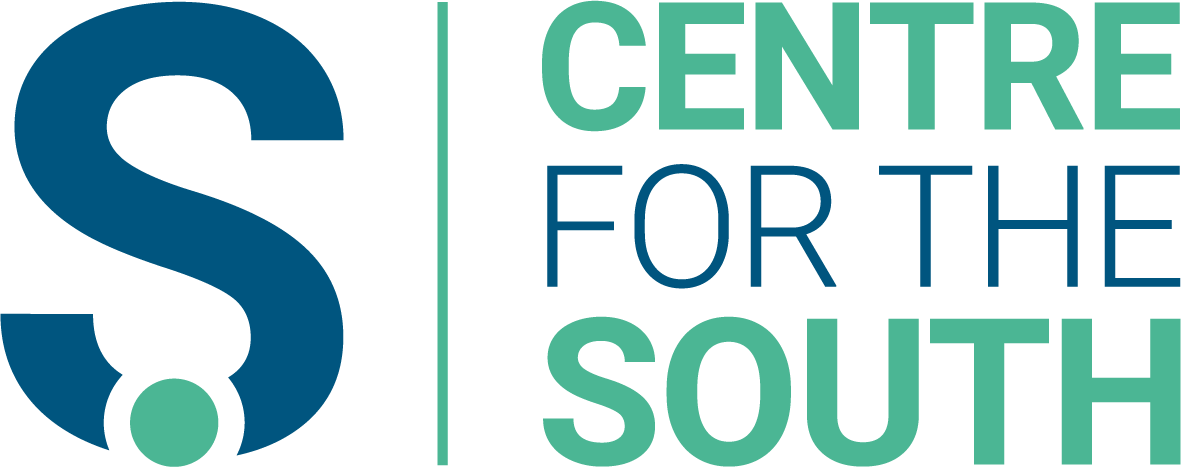Addressing Health Disparities in the central South: Insights from the Webinar
Speakers: James McMahon of NHS Dorset and Dr Ravita Taheem of the University of Southampton
On 6th March, Centre for the South hosted the first webinar of a new series on health and mental health inequalities. The series aims to respond to challenges set out by our stakeholder mapping report, by showcasing expertise and creating a platform for knowledge exchange.
The first webinar featured speakers James McMahon of the Dorset NHS Foundation Trust and Dr Ravita Taheem of the University of Southampton. They discussed equality challenges facing their region and examples of how health data collection and mapping could be used to ease the burden of local healthcare systems.
James McMahon
James McMahon is involved in Our Dorset, a new organisation supporting a fully integrated care board and single point of access for all care, blue light and voluntary services, and in fall prevention and patient representation work. He is also involved in research that uses secure health data to prevent later health deterioration and provide early detection. This includes new data research emerging from the University of Southampton, looking for 12 social determinants of disease to be used in public policy making.
He shared insights from Dorset’s leading healthcare system, including its collaborative approach across trusts and the new Blood Pressure at Home initiative.
He described how the 3 trusts in the Dorset area and their work with the Dorset Care Commission Group and community hospitals provider has been pioneering over the last decade. Being ahead of many national services in their levels of collaboration, Dorset was able to support development of integrated healthcare schemes. The production of the Dorset Insight and Intelligence Service (DiiS) manages early determinants of chronic illness and healthcare risks. This allows early screening and easy referral to relevant care services, preventing unnecessary admissions.
An example of this in practice is the Blood Pressure at Home initiative, designed as a response to high levels of unknown hypertension in the population (a risk of diabetes, heart attack, stroke and other conditions driving early death). Hypertension is especially prevalent in deprived communities, exacerbating differences in life expectancy by income.
Digitally enabled prevention services, like reporting blood pressure from home, allow citizens to be informed about their health and support remote management. An app prompts customers to take readings weekly and send the data to their GP. It was suggested that loaning blood pressure monitors in local libraries, similar to Somerset services, would reduce healthcare inequalities further.
Finally, James shared a video on how Dorset has also developed a five-year integrated care system plan with ambitions to address poor mental health, child obesity, life expectancy inequalities and independence of the elderly, and to add 100,000 healthy life years to the people of Dorset.
Dr Ravita Taheem
Dr Ravita Taheem is a Senior Public Health Practitioner and Researcher at the University of Southampton. She shared research highlighting the challenges of childhood obesity in Southampton.
High BMI is one of the leading contributors for death in Southampton. The National Child Measurement Programme, which takes the BMI of children in Year R and Year 6 of primary school (aged 4 and 11 respectively) highlights the relationship between wealth disparity and childhood obesity.
Despite parts of Southampton being some of the least deprived areas in the UK, deprivation affects Southampton at disproportionately higher rates than the rest of the UK, particularly for the under 18 population. This suggests a vast wealth disparity in the area.
Dr Taheem shared statistics showing Southampton rates of child obesity relative to UK averages and income percentiles. This showed that Southampton has above average levels of obesity, and stark differences between those in the most and least deprived areas. In the most deprived quintile, instances of excess weight in Year 6 children were 1.86 times more prevalent than in the least deprived quintile. There are also differences by ethnicity, with White and Asian rates of excess weight in children lower than rates in African and Bangladeshi communities. These differences increased during the time of the Covid-19 pandemic.
A scrutiny inquiry into childhood obesity was conducted in 2019 to investigate this as a problem and propose solutions, taking place over 6 months. Academics, local authorities, and councils from across the UK were consulted to present evidence to the elected Southampton councillors. This supported policy proposals which raised awareness of the issue and secured it on the Southampton Council corporate plan.
The recommendations from this inquiry included increases in free school meal availability, increases in leisure access, and further engagement with researchers and data mappers.
Dr Taheem shared how Centre for the South has funded mapping of the local food environment to inform policy. She listed newly introduced projects such as Early LifeLab (improving primary school health education), a childhood obesity safeguarding strategy, and community ventures. After 5 years of projects, a whole systems approach has been developed to allow the work and policy engagement to continue, building on the data and research developed.
Webinar Discussion
A discussion was held between the audience and speakers on the use of data in healthcare systems. Data underpins progress in identifying key public health issues and developing solutions.
The speakers discussed how, though data collection may be controversial, use of health care data in the examples given can improve quality of life and national spending on health. This data can be collected transparently, protected, and used to identify areas where support is needed, in the form of research-improved scalable health interventions.
